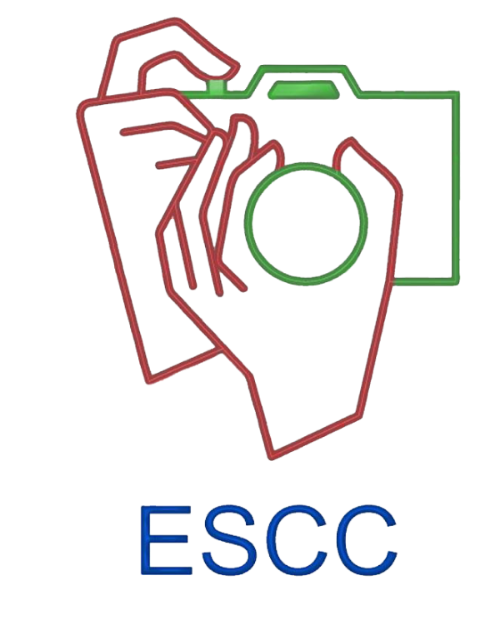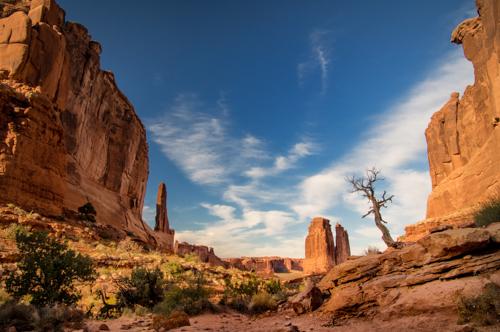Seidels in the USA pt 1
/Our final stage in the Seidel year of international travel commenced on October 18 with flights from Adelaide to Sydney, Sydney to LA (delayed by engineering problems then the fuel was disconnected from the international terminal), LA to Las Vegas (delayed because of previous delay). We finally arrived several hours late and somewhat tired.
The reason for the trip was that last year I (Keith) won a photo tour of the Canyonlands area of the South West USA.
The tour started in Las Vegas where the highlights were few after such long travel - the best thing about Vegas is leaving! If we Australians sometimes see the US as a land of contradictions, then Las Vegas is surely the greatest contradiction of all. Hoover Dam and being re-introduced to Margheritas were of interest, a helicopter flight over the grand canyon was too cramped for any quality photography, and then there was a neon graveyard.If it's
Las Vegas - get me outa here
Tuesday, it must be ...
The photo tour was a mix of bus tour for photographers and a workshop - with a local photographer to provide guidance and sunrise and sunset shoots scheduled everyday - including travel days. Whilst all locations were good - the tour became a marathon in the end with no planned rest breaks.
After leaving Vegas (hooray) our first of seven national parks was Zion National Park. This was wonderful - with a deep canyon filled with autumn colour and several deer to start off the fur'n'feathers requirements for the trip. Probably the most accessible and varied of the locations we visited.
Autumn Colour and Deer in Zion Canyon
Leaving Zion the landscape changed within the park, with the first evidence of weathered rock faces that make up much of the park features across the Colorado Plateau.
Weathered Rock - Zion National Park
From 2 days in Zion we moved on to Bryce Canyon - the first of several 1 night stays. Familiar to most photographers, Bryce was as expected. Three visits gave sunset, sunrise and late morning light to work with at different parts of the canyon, which is much larger than we expected (extends for almost 20 miles)
Bryce Canyon at dawn
Our next stop was another one-nighter visit to the least known of the parks we visited - Capitol Reef. Beautiful autumn colour and red rock faces gave way to dull gray badlands erosion. More time would have revealed more gems, but we had to move on to Moab for the Arches and Canyonlands National Parks.
Autumn colour and dismal badlands in the Capitol Reef area.
Arches National Park was the second Park to exceed expectations. The combination of eroded arches and steep canyons was a highlight. Within the park is Delicate Arch (the state symbol of Utah) - an hour walk worth the considerable effort at altitude with a significant climb from the valley floor.
Delicate Arch - the crowds actually made way for the sunset photography
Park Avenue and Sunset from Delicate Arch - Arches National Park
This was a park that we could easily return to - for obvious reasons.
Mesa Arch was the main highlight of Canyonlands National Park - with cameras three deep awaiting the sunrise 'money' shot.
Mesa Arch
Monument Valley was our next one nighter - the park is within the lands of the sovereign Navajo nation. References to western movies (esp. John Ford and John Wayne) and Navajo culture abound - and our trip around the self drive trail gave us some different angles for sunset. A visit the next morning to the "Forest Gump Highway" gave us the classic/iconic/clichéd view of Monument Valley from the north.
Contrasting views of Monument Valley.
Our photographic tour then took us to Page where we visited Horseshoe Bend (not for the faint hearted) and the famed Antelope Canyon (another absolute highlight). The photos we have all seen of the slot canyons (Antelope) are photographed in very confined spaces making the results an amazing achievement. It was such a good experience that we are returning to Page this week to visit a private slot canyon (Canyon X) for more.
Horseshoe Bend and Antelope Canyon
Our final destination was the Grand Canyon and in three days we barely scratched the surface. Our photography leader Glen Tamblingson specialises in the Grand Canyon and took us to several locations a bit off the general tourist track.
Grand Canyon Views
Grand Canyon Viewa
Our circuit of the Canyonlands covered over 2000 miles in 12 days (excluding the days spent in Vegas). The low, arid vegetation and bright harsh light are very familiar to Australian eyes - although whereas the Australian landscape is weathered, uplifted material - the Colorado Plateau at between 5000 and 9000 feet above sea level provides a fairly flat landscape (locally) where the erosion has cut down into the landscape.
Apart from mule deer, elk, a few chipmunks and one squirrel we have seen little wildlife in our travels and few birds apart from the omnipresent ravens.
Autumn Colour
So, what of the food and wine?
Unlike our previous travel reports (from Italy) we are unable to rave on uncontrollably about gourmet food and stunning local wines, leave alone great coffee. It is scary that the best beer we have had so far is the de-alcoholised beer at the View Hotel, Monument Valley. (The Navajo lands are dry!) We have had a couple of nice local cabernets, but our first red order of a "cabernet" at a steakhouse was a truly horrible Jacobs Creek 2011 Cab Sav.
Travelling in a photo tour in a 12 seat van was a bit like being contained within a cocoon - there was little opportunity to spread out to be adventurous food wise or to gain a better appreciation of the locals. Where possible we did try local Navajo influenced foods - but generally its been steakhouse, pizza or mexican.
Whilst the meals have rarely been bad or too oversized - there is a simplicity to the food preparation in the areas visited with steaks and pork ribs being the safest and best choices. The coffee - well its black and hot. The discovery of Thai restaurants on two occasions has been a saviour in the flavour stakes.
We were there - Grand Canyon
We now have a just over a week travelling on our own arrangements before our return - it should allow us a bit more time to experience the real South West.
Cheers
Keith & Barb























